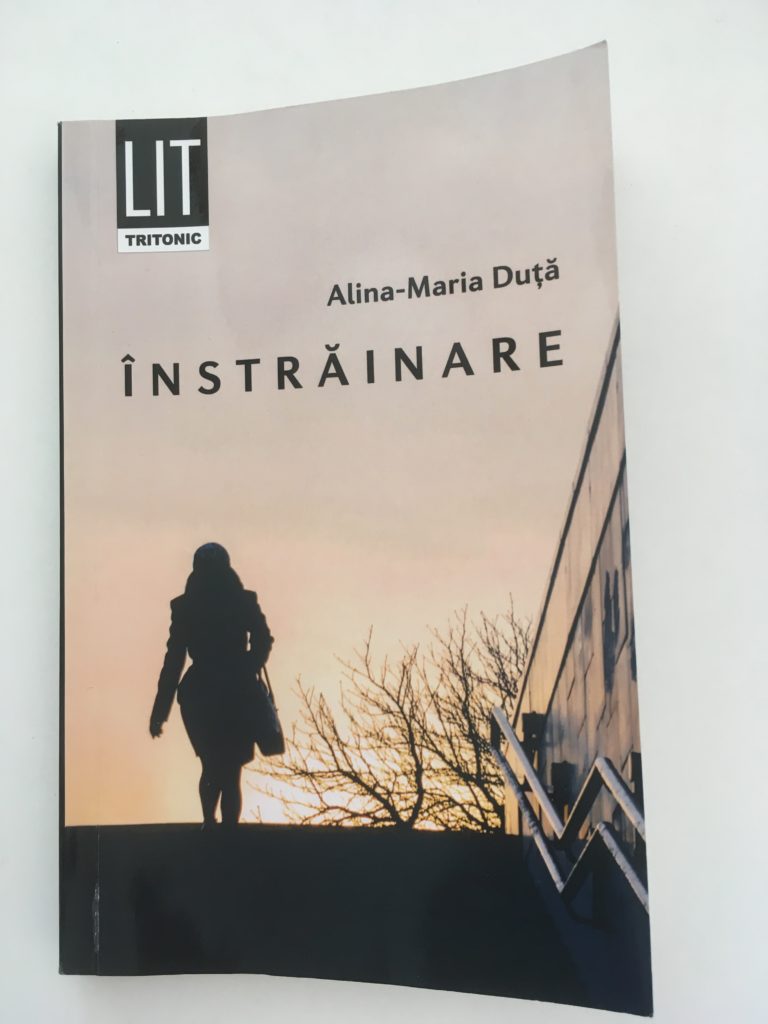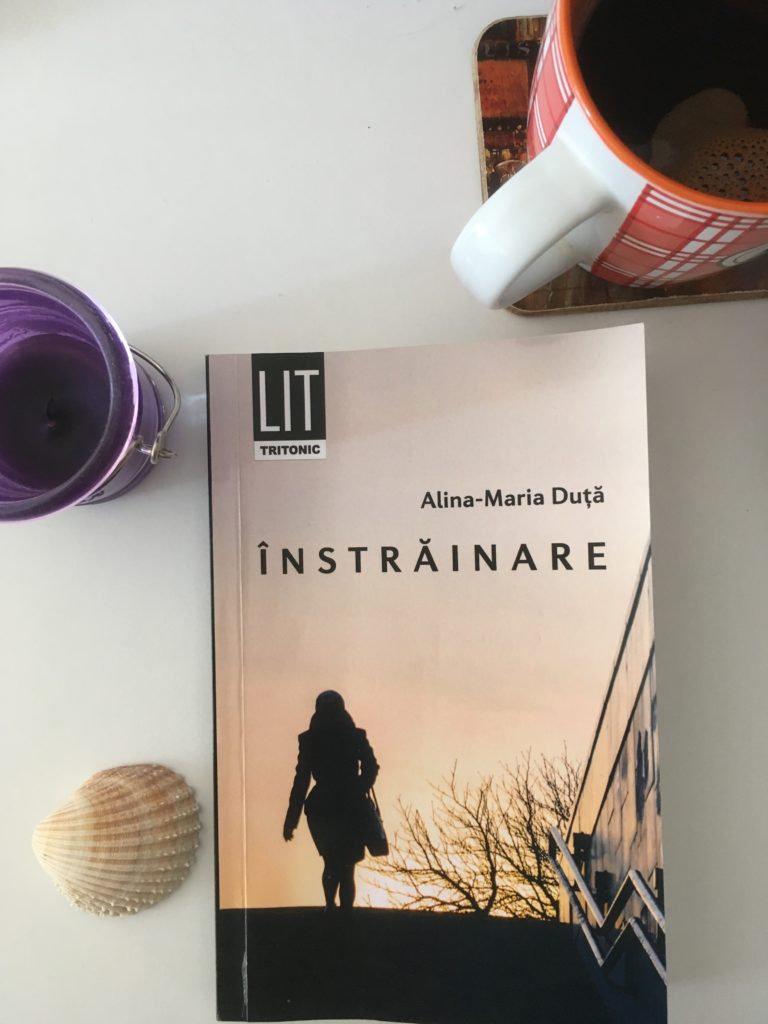Click here to read this post in English

Am fost interesată de relații dintotdeauna. Nu este ceva de care sunt mândră, mai ales pentru că uneori poate să pară că sunt interesată de bârfă. Ceea ce s-ar putea întâmpla, dar nu este cazul. De fapt, nu mă interesează cine, dar mă interesează progresul unei relații. Și nu pentru a ști, ci pentru a înțelege. Viața oferă atât de multe opțiuni și sunt atât de mult realități că m-aș simți deprivată să nu o pot înțelege altfel decât prin propriile mele experiențe directe. Motiv pentru care îmi plac și cărțile, și oamenii; acestea vorbesc nevoii mele de a înțelege puțin mai bine ceea ce înseamnă să fii om. Iar relațiile dintre oameni sunt o dimensiune importantă.
Pentru a evita să fiu prea intrusivă în viețile oamenilor, nu pun întrebări, însă absorb ceea ce-mi spun ceilalți despre relațiile lor. Relațiile sunt atât de complicate și fiecare persoană are propria perspectivă; mi-e greu să cred că două persoane care au fost într-o relație pot povesti exact la fel ceea ce s-a întâmplat. Asta face lucrurile și mai fascinante; trăim experiențe similare, dar sunt alte fapte, alte cuvinte, alte expresii care au un efect asupra noastră și care ajung să compună povestea vieții noastre.
Ca să nu mai lungesc vorba, cartea pe care o prezint aici mi-a fost recomandată de Rebeca, prietena mea de la editura Tritonic. A menționat că a citit-o și că este o lectura interesantă chiar după discuția noastră despre cartea Block 46 și descrierile ei grafice [care fac cartea excelentă]. Am citit descrierea de pe spate și mi-a atras atenția. Am luat-o și am mutat-o dintr-un loc în altul până sâmbata trecută când am petrecut întrega zi fiind puțin tristă și simțindu-mă obosită. A fost momentul perfect să-mi las mintea să călătorească prin experiențele altora, în timp ce stăteam confortabil pe canapea.
Și m-a prins. După trei ore și 181 de pagini, am ajuns la finalul cărții. Autoarea, Alina-Maria Duță, spune povestea din perspectiva Norei, o scriitoare care lucrează în publicitate și este într-o nefericită căsătorie cu un bancher, Robert. S-au cunoscut când Nora era într-o relație cu Ștefan, prima ei iubire. Cu toate acestea, experiența lui Robert și potențialul lui au atras-o într-o nouă relație, finalizând-o abrupt pe prima. Câțiva ani mai târziu, Nora și Robert păreau a fi într-o relație fericită pentru ceilalți, când ei, de fapt, trăiau într-o relație violentă în care el o abuza fizic, iar ea se întreba cum ar fi fost dacă ar fi rămas cu Ștefan. Neașteptat, primește o scrisoare de la un avocat din Viena, conectând-o pe Nora de povestea stăbunicii ei și de secrete de familie. Nu voi scrie mai mult de atât: restul poveștii este despre călătoria Norei în găsirea adevărului și pe ea însăși.
Ce mi-a plăcut cel mai mult în această poveste este că Nora este imperfectă. Lucrează mult, este descrisă ca fiind atrăgătoare și bine îmbrăcată, este reflexivă, dar este de asemenea și mult prea interesată de ea însăși, destul de egoistă și chiar superficială. Ceea ce este excelent, întrucât este călătoria ei spre auto-descoperire, așa că nu poate fi nici perfectă, nici victimă. Până la final, îmi este destul de clar că nu s-a încheiat călătoria ei, pentru că mai are lucruri de învățat despre ea; dar până la urmă, nu asta înseamnă să trăiești?
Un alt aspect care mi-a plăcut este incursiunea în viața din timpul celui de-al doilea război mondial [subiect care mă pasionează] prin prezentarea jurnalului altei femei. Conturează o imagine interesantă despre statutul femeii în România în prima parte a secolului XX.
Am apreciat de asemenea că majoritatea poveștii este prezentată prin ochii unor femei. Prezintă o imagine complexă a lumii interioare în care trăiesc uneori acestea, independent de gravitatea situației în care se află.
Cartea este așadar despre reziliență, despre cunoaștere de sine și despre împăcarea cu trecutul. Povestea se petrece în România, mai mult în București, mai puțin în Timișoara, dar și în Portugalia, în Lisabona și Sintra și în Austria, la Viena. Gândindu-mă la cărțile de ficțiune pe care le-am citit în ultima vreme, îmi place când povestea este plasată în locuri în care am fost sau pe care vreau să le vizitez.
Pentru gustul meu, mi-ar fi plăcut ca povestea străbunicii să fie mai detaliată, la fel ca povestea Norei cu Robert. În ciuda acestora, a fost o lectura ușoară și plăcută la finalul căreia mă simteam mai bine.
Mi-ar plăcea să am ocazia să stau de vorbă cu autoarea și să o întreb despre poveste. Cu siguranță îmi place să analizez fapte și experiențe, iar cu dezvoltarea Norei pot empatiza la diferite niveluri. Nimic la fel de dramatic, dar înțeleg cum poți face alegeri care se dovedesc a fi greșite mânat mai mult de curiozitate, decât de rațiune și bun-simț [Hm, de-ar fi povestea atât de simplă…].
Îți recomand să citești cartea și să îmi scrii ce crezi. Cum mai menționat în trecut, simt nevoia de a mă întâlni online cu un grup de persoane care au citit care și care doresc să discute opiniile lor după lectură. Cartea se găsește la editura Tritonic și este scrisă în limba română.
Citește ceva și fă ziua să conteze!
Opinion on book: Înstrăinare [Estrangement], by Alina-Maria Duță

I’ve always been interested in relationships. It’s not really something I am proud of because it can come off as interested in gossip. Which could be, but it’s not the case. I don’t really care to know the who, but the journey concerning a relationship. And not to know, but to understand.
Life is so diverse and we live so many different realities that I would feel deprived to only be able to understand life only though my own un-mediated experiences. Which is why I love books and people; they both speak to my need of understanding a little bit better what being human is really about. And relationships with each other are definitely an important dimension of being human.
To avoid being too intrusive in people’s lives, I don’t ask questions, but rather absorb what people tell me. Relationships are so complicated and each person has his/her perspective that I find it hard to believe two people who were in the same relationship would tell the same story about what happened. Which makes it even more fascinating; we live similar experiences, but other facts, other words, other expressions have an effect on us and get to compose our life stories.
To cut the story short, this particular book was recommended to me by Rebeca, my friend from Tritonic Books. She mentioned that she read it and found it interesting, right after we discussed Block 46 and its graphically described horrors [which make the book excellent]. I read the description on the back of the book and it made me interested. I moved it from one place to another until last Saturday when I spent the entire day feeling a little bit sad and tired. It was the perfect moment to let my mind travel through somebody else’s experience while lying comfortably on my sofa.
And I was hooked. Three hours and 181 pages later, I finished reading the entire book. Alina-Maria Duță, the author, tells the story mainly through the eyes of Nora, a published author who works in advertising and is unhappily married to a banker, Robert. They met when she was in a relationship with Stefan, her first love. However, Robert’s experience and potential attracted her into a new relationship after quite abruptly ending the other one. Several years later, they seemed happy and accomplished to the world, but they were living in a violent relationship in which he physically abused her and she wondered what could have been with Stefan. Suddenly, she received a letter from a lawyer in Vienna, connecting Nora to the story of her great-grandmother and to family secrets. I will not spoil it, but I will just leave it to this: the rest of the story is about Nora’s journey in finding the truth and herself.
What I liked most about the story is that Nora is flawed. She is working hard, seems to be beautiful and nicely dressed, she is reflexive, while she is also self-absorbed, quite selfish and superficial. Which is great, because she is on her journey of learning who she is, therefore she can’t be perfect nor a victim. By the end, it seemed to me quite clear that her journey is not finished, as she has much learning about herself to do, but isn’t this what life is all about?
Another great thing about the book is how the reader is immersed into life during the Second World War, which I am passionate about, by presenting the journal of another women. It definitely paints an interesting picture concerning the status of women in Romania in the first part of the XXth century. I couldn’t help wondering if it was real.
I do appreciate that most of the story is presented through the eyes of women. It presents quite a nice picture of the internal turmoil women live throughout their lives, independently of the gravity of their life situation.
The book is very much about resilience, knowing yourself and making peace with the past. The story takes place in Romania, mainly in Bucharest, but also in Timisoara, in Lisbon and in Sintra, and in Vienna. Thinking more about the fiction books I read, I do like it when the story happens some place I’ve been or I want to visit.
For my taste, I would have preferred if the grandmother plot was more detailed; same with how the love story between Nora and Robert evolved. Despite this, I found it to be an easy and relaxing read and I did feel better at the end.
I would love to have the opportunity to sit down with the author and ask her about the book. I am one who likes to analyse things and Nora’s development hits home for me on many levels. Nothing as dramatic as her story, but I do know a couple of things about making decisions that turn out to be mistakes, pushed by sheer curiosity, instead of rationality and common sense. But the story is never as simple as this, is it?
I recommend you to pick up the book and to let me know what you thought. As mentioned before, I feel the need to meet a group online in which we could read books and discuss our findings. The book is to be found at Tritonic Books and is written in Romanian.
Read something and Make today count!
